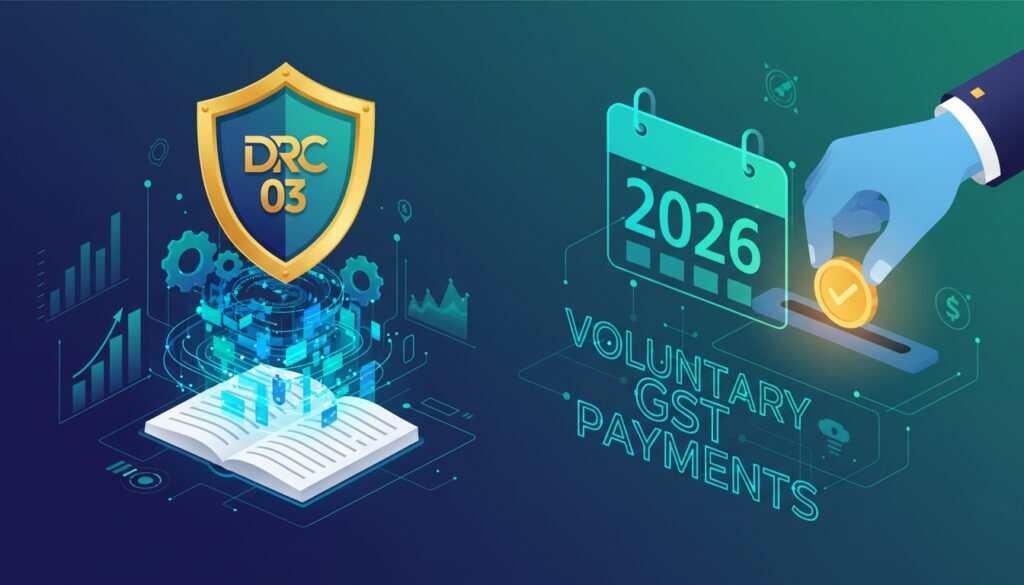Introduction
In the ever-evolving landscape of online content, standing out and capturing your audience’s attention is paramount. This article delves into the innovative approach adopted by the Government of Gujarat in their pursuit to combat GST fraud – the introduction of a passport-like mechanism complete with police verification. We will explore the reasons behind this move, legislative changes, controversies, and efforts in heritage preservation.
Facts at a Glance
Let’s begin by summarizing the key facts and details of Gujarat’s new mechanism for GST registration:
| Focus Keyword | Police Verification in GST |
|---|---|
| Location | Gujarat, India |
| Initiative | Passport-Like Mechanism for GST Registration |
| Announcement Date | During the monsoon assembly |
| Purpose | Combatting GST fraud and bogus billing |
| Legislative Changes | Gujarat Taxation Laws (Amendment) Bill, 2023 |
| Gujarat GST (Amendment) Bill, 28% tax on betting | |
| National Level | Similar 28% tax on online gaming at the national level |
| Heritage Preservation | Abolishment of heritage preservation authority |
| Creation of Pavagadh Area Development Authority |
The Mechanism: Police Verification in GST
Tightening the GST Registration Process
In an effort to combat the growing menace of bogus billing, the Gujarat government has decided to tighten the GST registration process. Under this initiative, individuals seeking a GST number will undergo a registration process that mirrors the procedures for obtaining a passport, complete with police verification. The primary goal behind this strategic move is to eliminate the possibility of fraudulent activities associated with bogus billing.
Addressing Concerns and Legislation
The decision to implement this mechanism was prompted by concerns raised by members of the opposition Congress party regarding unscrupulous individuals claiming tax credits through the presentation of fake bills. Minister Kanubhai Desai announced this development after introducing a crucial bill aimed at rationalizing interest rates on delayed tax and duty payments.
Key Legislative Changes
Minister Desai elaborated on the ‘Gujarat Taxation Laws (Amendment) Bill, 2023,’ which not only sets the maximum interest rate but also grants the government the authority to specify a lower interest rate through official notifications. This bill received majority support in the BJP-controlled assembly.
Additional Legislative Actions
Apart from the taxation bill, the assembly passed two other significant bills. The first is the ‘Gujarat Goods and Services Tax (Amendment) Bill,’ and the second is the ‘Champaner-Pavagadh Archaeological Park World Heritage Area Management Authority (Repeal) Bill.’
Controversial Tax Proposal
The ‘Gujarat GST (Amendment) Bill’ proposing a 28% tax on bets placed in online gaming, casinos, and horse race clubs stirred significant debate. After an intense discussion, the bill was passed by a majority voice vote. Senior Congress MLA, CJ Chavda, expressed concerns about the bill, suggesting that it might inadvertently legalize gambling in Gujarat by collecting taxes from individuals placing bets through online applications instead of prosecuting them.
National and State-Level Measures
It’s essential to note that at the national level, a similar bill was passed in August, amending the Central and Integrated GST laws to impose a 28% tax on online gaming, casinos, and horse race clubs.
Streamlining Heritage Preservation
In a separate legislative move, the assembly proposed the abolishment of an authority established in 2006 to preserve heritage structures near Champaner and Pavagadh in the Panchmahal district. This decision was made in favor of creating the ‘Pavagadh Area Development Authority’ by the state government in June of the current year. This new authority is expected to serve the same purpose more effectively.
Conclusion: The Significance of Police Verification in GST
The Gujarat government’s decision to introduce a passport-like mechanism, complete with police verification, into the GST registration process reflects its commitment to combat bogus billing and ensure the integrity of the taxation system. These legislative changes, though not without controversy, mark significant steps in the ongoing efforts to streamline taxation processes and preserve heritage structures in the state.
Frequently Asked Questions (FAQs)
The primary aim is to combat GST fraud and eliminate the possibility of fraudulent activities associated with bogus billing.
The ‘Gujarat Taxation Laws (Amendment) Bill, 2023,’ and the ‘Gujarat GST (Amendment) Bill’ proposing a 28% tax on certain activities.
Yes, concerns were raised, particularly regarding the potential inadvertent legalization of gambling in Gujarat.
It was established to replace the heritage preservation authority and is expected to serve the same purpose more effectively.
In conclusion, Gujarat’s innovative approach to GST registration is a significant step forward in combating fraud and streamlining the taxation process. While it has sparked debates and controversies, it reflects the government’s commitment to transparency and preserving its heritage.
Remember to stay updated on the latest developments in this initiative, as the landscape of taxation and fraud prevention continues to evolve.
Please Rate this post
Click to rate











